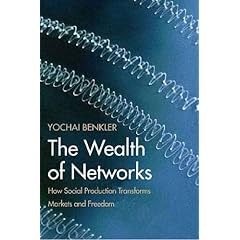Monday, 18 December 2006
As I anticipated on Friday, and noted earlier today: the Full Federal Court judgment in the Cooper case has been handed down. This is a significant, appeal judgment on the scope of secondary liability in copyright law: that is, when can one person be responsible for the infringing activities of another?
In this case, the Full Federal Court had to consider whether a website, structured and designed both to provide links to infringing MP3 files, and to provide facilities for the easy, automatic upload of such links, could lead to liability for authorising infringement of copyright for the website designer (Cooper), and the hosting ISP (E-Talk) (the website itself, now down, can still be seen (though not used) via the Internet Archive Way Back Machine (the URL was www.MP3s4FREE.net) To be completely clear, Cooper was not hosting infringing mp3s. But his website did provide easy access and a central point for placing links.
At first instance, Tamberlin J held both liable – leading to much commentary, particularly on the breadth of the Australian concept of authorisation. If you’re interested in where Australian law on secondary liability for copyright infringement lay prior to this judgment, and how it compares to US concepts, have a read of this article by copyright leading lights Sam Ricketson (australia) and Jane Ginsburg (US).
Summary: in this judgment, the Full Federal Court has pretty much affirmed the reasoning of the Trial Judge. Overall, I find the reasoning pretty troubling in this case: particularly the reasoning of Branson J, which seems to me to endorse a broader view of appropriate liability than the other judgment of Kenny J. I think the judgment shows three things:
- That Australian law is out on its own in terms of potential liability for authorisation of copyright infringement. The law is certainly broader – that is, the scope of activities that will potentially lead to liability is wider – than equivalent concepts in the UK (as illustrated in cases like the Amstrad case) or Canada (as illustrated by cases like CCH). And, as Ricketson and Ginsburg point out, it is broader, even, than US law post-Grokster. Anything that would be caught by post-Grokster inducement liability would also be caught by Australian authorisation liability – and then some.
- More broadly, the case illustrates that Australian copyright law is increasingly becoming a strange, independent beast. The judgments in this case are truly remarkable for their lack of reference to, or engagement with, recent overseas authority or legal developments. Just remarkable.
- Most remarkably to anyone outside that arcane society of the High Priests and Initiates of Copyright: linking to another website that carries an infringing file does carry some legal risk under the reasoning in this case.
Over the fold, I have some more detail. But let me give you a flavour of what I think. As I read the judgment, quite honestly, I was amazed by the absence of any explicit conscious engagement with the real world. To read this judgment – as I said, particularly the broader one of Branson J – you could be forgive for wondering how much the honourable members of the court actually use the Internet. It’s not way the law is described, it is the fact that the judgments can make comments about the potential liability of a website operator for copyright infringement for the most mundane acts – like, oh – linking to another website – without any acknowledgment that that might be an issue, or a problem, or an even slightly undesirable development in the law. (more…)

